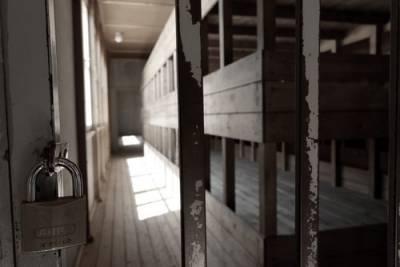Should the Use of Solitary Confinement Be Reduced in U.S. Prisons?
 Most people are aware of the practice of solitary confinement in prisons, either from watching movies about prison or hearing about the treatment of prisoners in the news. Prisoners in the United States are routinely subjected to this form of confinement, which is also known as isolation or segregated confinement. However, this practice has been shown to cause a great deal of psychological harm, as well as physical health problems. Because of this, advocates for prisoners' rights are seeking to reduce or limit the use of solitary confinement, especially since it can be an issue that disproportionately affects minorities who become caught up in the criminal justice system.
Most people are aware of the practice of solitary confinement in prisons, either from watching movies about prison or hearing about the treatment of prisoners in the news. Prisoners in the United States are routinely subjected to this form of confinement, which is also known as isolation or segregated confinement. However, this practice has been shown to cause a great deal of psychological harm, as well as physical health problems. Because of this, advocates for prisoners' rights are seeking to reduce or limit the use of solitary confinement, especially since it can be an issue that disproportionately affects minorities who become caught up in the criminal justice system.
Problems With Solitary Confinement and New Laws and Policies to Address the Issue
Solitary confinement is defined as holding a prisoner in isolation and restricting their contact with other people for at least 22 hours per day for a period of 15 days or more. In many cases, prisoners in solitary confinement are held in a small cell, with no access to natural light or fresh air. They are often denied exercise, recreation, and contact with family and friends. Lights in cells may be left on at all times, limiting a person's ability to sleep. While short periods of isolation may be necessary to protect the safety of a person or others, there are some cases where prisoners may be held in solitary confinement for weeks, months, or even years.
This type of isolation can have serious consequences to a person's mental and even physical health. People who are held in solitary confinement are likely to experience severe psychological distress, which may involve anxiety, depression, panic attacks, hallucinations, paranoia, and feelings of hopelessness that may lead them to attempt suicide. Those who have been held in long periods of isolation may experience social withdrawal, difficulties with impulse control, violent outbursts, memory problems, and a worsening of pre-existing mental health issues. Solitary confinement can have a number of physical effects as well, such as chronic headaches, dizziness, fatigue, pain in the muscles and joints, decreased appetite, problems with eyesight, sleep disorders, and difficulty managing conditions such as diabetes or high blood pressure.
Due to the dehumanizing aspects of solitary confinement and the harm it causes to prisoners, it is considered by many to be a form of torture. Moreover, solitary confinement can interfere with prisoners' ability to communicate with their lawyers and receive a fair trial. For these reasons, advocates have been calling for the use of this practice to be limited to exceptional circumstances. This has led to a reduction in the use of solitary confinement in recent years. In 2014, it is estimated that between 80,000 and 100,000 prisoners in the United States were held in isolation. By 2021, these numbers had been reduced to between 41,000 and 48,000.
Multiple states have also passed laws intended to limit the use of solitary confinement. Here in Connecticut, Governor Ned Lamont signed a law in May of 2022 that prevents prisoners from being held in isolation for more than 15 days or for more than 30 total days in a 60-day period. New York also recently passed a law that prohibits the use of solitary confinement for prisoners with disabilities or who are under the age of 21 or over the age of 55. While President Biden made a campaign promise to end the practice of solitary confinement with limited exceptions, he has not yet taken action to limit its use in federal prisons.
Contact Our Connecticut Criminal Defense Lawyer
Despite the clear harms of solitary confinement, it is still widely used in the United States criminal justice system. This practice should be ended, and nobody should be subjected to inhuman conditions that can result in physical and psychological harm. At Woolf & Ross Law Firm, LLC, we believe in protecting the rights of prisoners and ensuring that they are treated humanely. We can provide legal help and representation for those who have been subject to mistreatment, and we work to ensure that our clients are treated fairly and justly. If you or a loved one have experienced mistreatment while being held in confinement at a jail or prison, contact our Hartford criminal defense attorney today to learn about your legal options. Call 860-290-8690 for a free consultation.
Sources:
https://www.washingtonpost.com/opinions/2022/09/06/solitary-confinement-torture-prison/
https://www.medicalnewstoday.com/articles/solitary-confinement-effects#definition
https://portal.ct.gov/Office-of-the-Governor/News/Press-Releases/2022/05-2022/Governor-Lamont-Signs-Legislation-Limiting-the-Use-of-Isolated-Confinement






